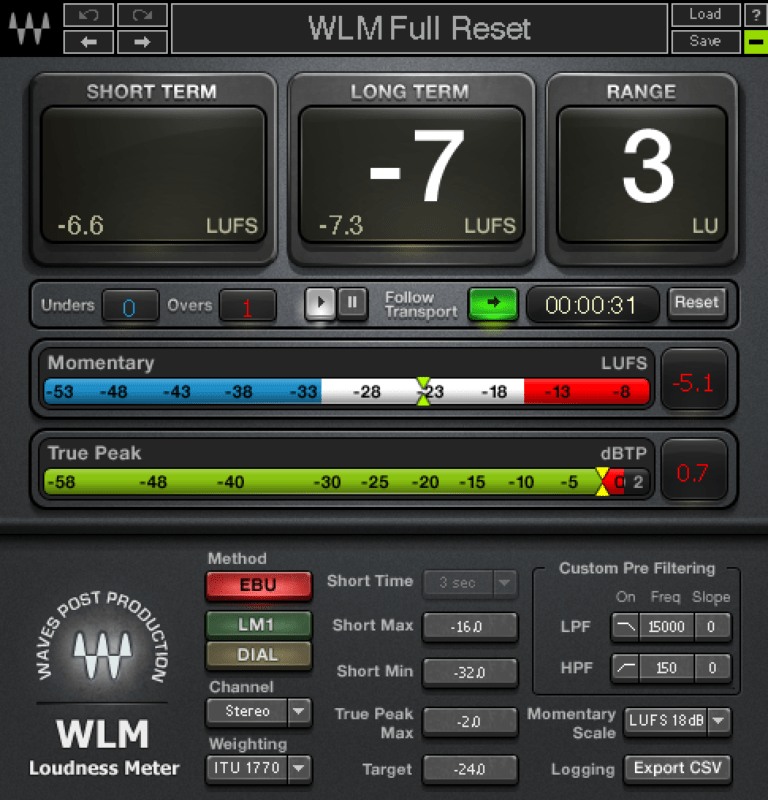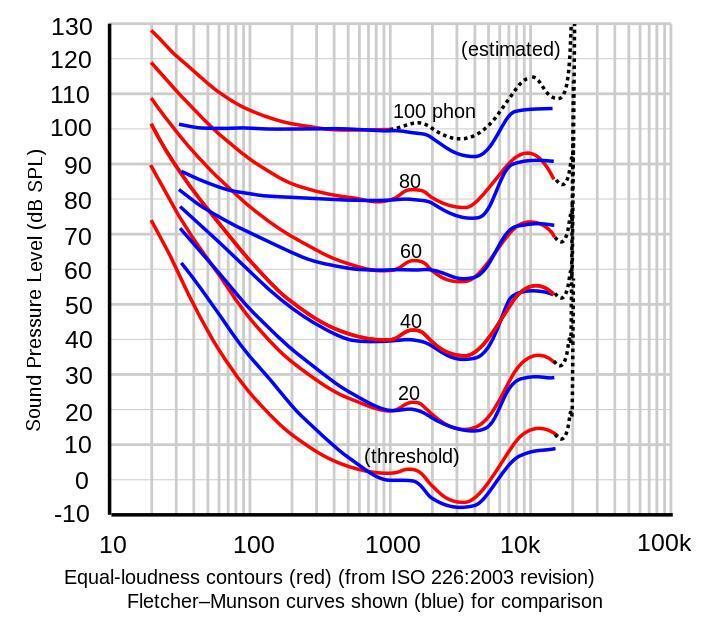Your mix should be loud enough to be exciting and energetic, but not so loud that it distorts or fatigues the listener. Finding the right balance is critical to achieving a professional sound.
When it comes to mixing music, one of the most common questions that arises is, “How loud should my mix be? ” The loudness of your mix can significantly impact its overall impact and effectiveness. Understanding the optimal level of loudness for your mix is crucial for creating a polished, professional sound.
We will explore the ideal loudness levels for a mix and provide guidance on how to achieve the perfect balance of volume and clarity in your music. By the end, you’ll have a clear understanding of how to ensure your mix sounds its best and engages the audience effectively.

Credit: fatasfunk.com
Understanding The Impact Of Mix Volume
The Importance Of Mix Volume In Music Production
In the world of music production, the importance of mix volume cannot be overstated. The volume of your mix plays a crucial role in determining how your music is perceived by your audience. Paying attention to the mix volume is essential for achieving a balanced and professional sound.
How Mix Volume Affects The Overall Sound Quality
Mix volume has a direct impact on the overall sound quality of your music. The relationship between mix volume and sound quality is intricate and cannot be ignored. A well-balanced mix volume ensures that each element in the track can be heard clearly without overpowering or getting lost within the mix.
The Ideal Mix Volume
Mix volume is a crucial aspect of the production process, as it directly impacts how the music is perceived by the audience. Finding the ideal mix volume is essential to ensure that your music is both engaging and enjoyable.
Determining The Optimal Loudness Level For Your Mix
When determining the optimal loudness level for your mix, it’s important to consider the dynamic range and overall balance of the instruments and vocals. Using professional audio metering tools can help you achieve a balanced and well-calibrated mix volume.
Considerations For Different Genres And Playback Platforms
Each genre of music may have different ideal mix volumes based on its characteristics. For example, EDM and hip-hop tracks often have higher mix volumes to create an energetic atmosphere, while acoustic and classical music may be more subdued. Additionally, various playback platforms such as streaming services and radio may have specific loudness standards that should be taken into account when mixing your music.
Common Mistakes In Mix Volume
When it comes to mixing your tracks, getting the right volume levels is crucial. However, there are some common mistakes that many beginners make when it comes to mix volume that can negatively impact the overall sound quality of your music. In this article, we will discuss two of these common mistakes:
Overcompression And Its Negative Effects On Mix Volume
Overcompression is a mistake that many novice producers and engineers tend to make. Compression is a powerful tool used to control the dynamic range of an audio signal. However, applying too much compression to your mix can have negative effects on the overall volume and sound quality.
Compression is used to even out the levels of different elements in a mix, making quiet sounds louder and loud sounds quieter. But using too much compression can result in a flat and lifeless mix. It can squash the dynamics of your tracks, making them sound unnatural and reducing the impact of certain elements.
When overcompressed, your mix can also suffer from what is known as “pumping” or “breathing” artifacts. These artifacts are caused by the compression reacting too heavily on certain elements of the mix, resulting in noticeable volume fluctuations. This can be distracting and take away from the overall listening experience.
To avoid overcompression and its negative effects, it is important to use compression sparingly and with intention. Pay attention to the attack and release settings of your compressors and make subtle adjustments to maintain the natural dynamics of your mix.
The Danger Of Excessive Loudness In The Mastering Process
Another common mistake in mix volume is pushing your mix to be excessively loud during the mastering process. Many artists believe that having a loud mix will make it stand out among other tracks, but this is not always the case.
When a mix is pushed too far in volume during mastering, it can result in a phenomenon known as “clipping.” Clipping occurs when the peaks of the waveform exceed the maximum level that can be represented, causing distortion and a loss of audio fidelity. This can lead to a harsh and unpleasant listening experience.
Excessive loudness can also greatly reduce the dynamic range of your mix. Dynamic range refers to the difference between the quietest and loudest parts of a track. When a mix is made excessively loud, this range is greatly reduced, resulting in a loss of depth and impact in the music.
To ensure your mix doesn’t suffer from excessive loudness, it is important to leave headroom during the mixing process. Leave enough space in the volume levels for the mastering engineer to work with, allowing them to maximize the overall loudness while still maintaining the integrity of your mix.
In conclusion, avoiding these common mistakes in mix volume, such as overcompression and excessive loudness, is crucial to achieving a well-balanced and professional-sounding mix. By understanding the negative effects of these mistakes and taking the necessary precautions, you can ensure that your mix will sound its best.

Credit: majormixing.com
Tools And Techniques For Achieving The Perfect Mix Volume
When crafting your mix, getting the volume just right is key to ensuring every element shines without overpowering others.
Utilizing Dynamic Range And Proper Gain Staging
To maintain clarity and prevent distortion, control dynamic range with precision and set appropriate gain levels.
The Role Of Eq And Compression In Balancing Mix Volume
Enhance tonal balance with EQ, carving space for each element while compression evens out peaks and troughs.
Finding The Right Balance: Dynamics Vs. Loudness
In the realm of audio mixing, dynamics refer to the variation in volume levels within a song, while loudness pertains to how intense or powerful the overall sound is perceived.
Strategies for achieving a balanced mix with appropriate volume
- Set levels for individual tracks first.
- Use compression to control dynamic range.
- Avoid excessive use of limiting for loudness.
- Reference tracks for comparison.

Credit: www.sweetwater.com
Frequently Asked Questions On How Loud Should My Mix Be
How Important Is The Loudness Of My Mix?
Loudness impacts the overall impact and clarity of your mix. It should be balanced to ensure all elements shine.
What Is The Ideal Loudness Level For A Mix?
Aim for a master peak level around -6dB to -3dB to leave headroom for mastering without clipping.
Why Is It Crucial To Maintain A Balanced Mix?
A balanced mix ensures every element can be heard clearly, preventing certain parts from overpowering others. It leads to a cohesive sound.
What Can I Do If My Mix Sounds Too Loud Or Too Quiet?
Adjust individual track levels, utilize compression and EQ, and consider mastering techniques to achieve optimal loudness levels.
Conclusion
Finally, achieving the right loudness for your mix is crucial for creating a professional and impactful sound. By following industry standards and using the appropriate tools, you can strike the perfect balance between loudness and preserving the dynamics of your audio.
Remember to consider the platform and audience you are targeting, as well as the genre of your music. With proper attention to detail and a keen ear, you can ensure that your mix stands out and leaves a lasting impression on your listeners.